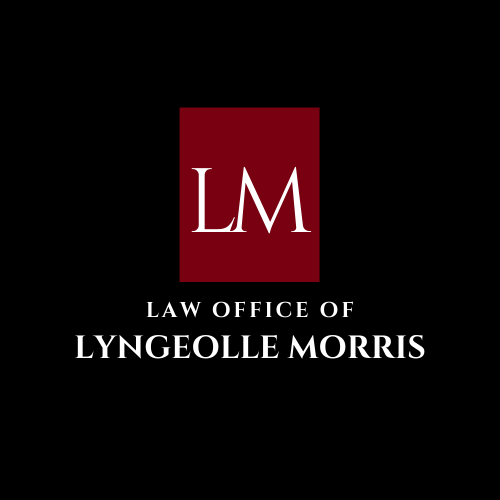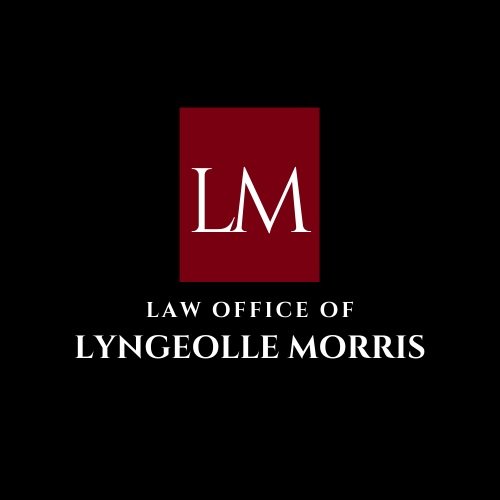Deeds of Gift in Barbados: Everything You Need To Know
Upon acquiring a property, individuals encounter diverse options in managing and dealing with their asset. While some opt for a future sale, and others maintain ownership until passing it to heirs, a distinct alternative exists for those seeking a more personal avenue.
Some may wish to transfer that property to a loved one during their lifetime.
In certain instances, the need may arise to either:
Include a loved one's name as an additional owner to the property or to;
Transfer the entire property to your loved one during your lifetime.
If you are seeking to transfer property to a loved one during your lifetime, this transfer will not typically involve the exchange of money for the transfer, but will be out of ‘love and affection’ for the person receiving the property. As such, this will be in the form of a gift.
To formalize this type of transfer, a deed of gift will be required.
In this article, we will delve into the significance of Deeds of Gift, where we will explore the following key aspects:
What is a Deed of Gift?
Understanding the purpose and relevance of this legal document.
Putting a Deed of Gift in Place: How Does the Process Work?
A comprehensive guide detailing the steps involved in executing a Deed of Gift.
The Legal Implications of a Deed of Gift
We’ll take a look at the legal significance of this unique property transfer.
Advantages and Disadvantages of a Deed of Gift
We’ll explore the practicalities involved to assist you with informed decision-making.
Deed of Gift -vs- a Last Will & Testament: A Comparative Analysis
We’ll compare these legal instruments, helping you to choose the approach that aligns with your goals.
Key Terms to Know
We’ll take a look at the essential terms associated with Deeds of Gift
What is a Deed of Gift?
A deed of gift is a legal document that formalizes the transfer of ownership of property from the owner (known as the ‘donor’) to another person (known as the ‘donee’). This is usually a voluntary act and there is no consideration or exchange of money for the transfer, as it is grounded in the donor’s expression of ‘love and affection’ towards the donee.
2. Putting a Deed of Gift in Place: How Does the Process Work?
Voluntary Intent
The person transferring the property must first intend to voluntarily transfer ownership to the recipient, free from coercion or fraud.
Hiring the services of an Attorney-at-Law
The next step is to hire the services of an attorney whose role is to assist in preparing the legal documents needed to formalize the transfer.
Your attorney will verify the following information:
That the transfer is voluntary and of the owner’s free will
Evidence of property ownership (the owner must provide copies of title deeds and a copy of the most recent land tax bill)
The value of the property
The attorney will also be responsible for drafting the deed needed to transfer ownership from the donor to the donee.
The deed of gift includes the following important elements:
The names and addresses of the donor and donee
A detailed description of the property
The deed must indicate that the transfer is made based on the ‘love and affection’ of the donor
The date of transfer
The attestation clauses (provision for the signature of the parties to the deed and their respective witnesses)
Payment of Stamp Duty, Property Transfer Tax, Recording Fees
While there is no consideration or monetary exchange for this type of transfer, there are important government fees that must be paid to formalize and register the deed. These include stamp duty, property transfer tax and recording fees.
1. Stamp Duty
Stamp duty is a government tax that is charged on the instrument transferring property. Stamp duty must be paid to ensure that the deed is validly recorded or registered.
Stamp duty charges will depend on the value of the property. The charge would be $10.00 for every $1,000.00 or part thereof (or 1% of the value).
Example: For a property valued at $350,000, the deed would incur a stamp duty of $3,500.00.
2. Property Transfer Tax
Property Transfer Tax (‘PTT’) is also to be paid on the transfer of title to property. This is the tax charged on the change of ownership of the property.
According to the Barbados Property Transfer Tax Act Cap. 84A, property transfer tax is calculated at the following rate:
a. Where the property consists of land alone - 2.5 % of the value of the property (Example: a property with vacant land having a value of $50,000.00 will incur a PTT of $1,250.00)
b. Where the property consists of land and a dwelling-house or other building – 2.5% of the value of the property (with the first $150,000 being exempted) - (Example: a property with land and a house with a value of $300,000.00 will incur a PTT of $3,750.00)
3. Recording Fees
These are the fees charged for registering the deed with the Barbados Land Registry and will typically depend on the length of the deed. You should consult with your attorney on the charges that will be incurred for registering the deed.
Registration of the Deed at the Barbados Land Registry
Finally, once the parties have executed the deed, it must be recorded at the Barbados Land Registry. This act indicates that there is constructive notice to the public at large. Once the deed of gift is registered, this passes the legal title on the recipient (‘donee’). The transfer will also pass with any rights and restrictions affecting the property.
3. What are the legal implications of a deed of gift?
Once the deed of gift is executed and recorded, the property automatically becomes transferred to the donee/person receiving the gift.
This is usually an irrevocable act and comes into effect once the execution and registration are complete.
For persons looking to transfer property during their lifetime and not after death, a deed of gift allows them to avoid the probate process as the gift would be outright to the recipient.
4. Deed of Gift -vs- Last Will & Testament
We will now explore the key differences between these two key legal documents: a Deed of Gift and a Last Will and Testament.
To learn more about putting a Last Will & Testament in place and the associated benefits, click here.
As a property owner, once you understand the differences, this will provide you with the clarity you need to make a well-informed decision about transferring your property asset.
Ultimately, you will determine which method best suits your specific goals.
Let’s dive into the considerations that guide the choice between a Deed of Gift and a Will.
The graphic below compares the following:
When does the transfer take place?
Is probate required for the transfer to be effected?
Can it be revoked?
What are the registration requirements?
Costs
5. Advantages & Disadvantages of a Deed of Gift
Let’s now turn our attention to some of the advantages and disadvantages of a Deed of Gift.
Before deciding to put a Deed of Gift in place, you should first weigh the pros and cons of executing a Deed of Gift. This will assist you in determining whether a Deed of Gift is the right legal strategy for you.
Advantages of a Deed of Gift
The transfer occurs during the lifetime of the person making the transfer. The benefit is that it allows for the gift to be outright. Gifts made after death (such as through a Will or as a result of inheritance rule) would first have to go through the probate process.
Once the parties sign the legal document and have the deed registered, the transfer becomes automatic. This process can take place fairly quickly depending on whether all the relevant information is available.
Protects the interests of the parties against possible conflicts. The execution of the deed is likely not to be challenged by third parties, as there is a clear intention that the parties intend to be bound by the transfer.
Can be used in instances where you may wish to add a person’s name to the ownership of the property.
Disadvantages of a Deed of Gift
While there is no money passed in consideration of the transfer, there are costs involved in finalizing the transfer. These include: Stamp duty, Property Transfer Tax, Recording Fees and Attorney’s fees.
The deed of gift is irrevocable and therefore once the property is transferred this cannot be reversed (exception: instances of fraudulent transfers).
Once the transfer takes place, you will no longer have control (unless in instances where one retains shared ownership)
6. Key Gift of Deed Terms Explained
In this section, we'll simplify 8 essential terms related to deeds of gift.
Toggle the ‘ + ‘ below for each definition
-
The payment of money or a benefit in exchange for something. In the case of gifts, the consideration passed is ‘love and affection’. There is no exchange of money for this type of transfer.
-
A legal document in which the owner of the property voluntarily transfers the property to another without monetary exchange for the transaction.
-
The person who is the recipient of the gift of property from the donor
-
The person who transfers the property as a gift to another
-
Signing, stamping or completing all legal formalities required to bring the legal document into effect
-
A tax imposed by the Barbados government when there is a change of ownership of the property. The amount of PTT charged will be based on the value of the property being transferred. (Calculated as 2.5% of the value of the property being transferred, with the first $150,000.00 exempted where there is a building on the land).
-
The process of recording a legal document on the official register, which constitutes notice to the public at large. Registration of property deeds takes place at the Barbados Land Registry.
-
A tax that is imposed on legal documents and instruments. This is effected and certified by impressing or affixing official stamps. (Calculated as 1% of the value of the property being transferred).
Final Note
For those opting to transfer their property by executing a deed of gift for their family, friends, or loved ones, this is a significant decision that should be approached thoughtfully.
The choice to pass on your property in this manner carries considerable weight, so you must consider all the key factors involved. For individuals keen on gifting their property to loved ones during their lifetime, this strategy emerges as an excellent avenue to explore, creating a meaningful legacy for those you care for.
Questions?
For any inquiries or guidance concerning the Deed of Gift process, feel free to contact the Law Office of Lyngeolle Morris with any questions you may have by clicking here.
To schedule a call with us, click here.
We look forward to learning more about your real estate needs at this time.





